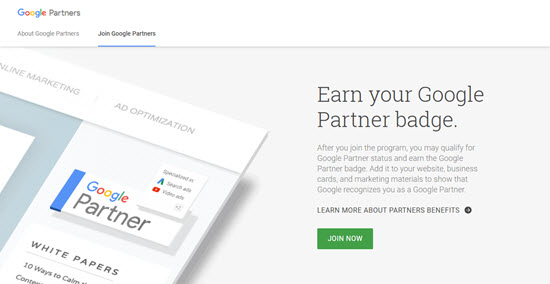Some local SEO companies tout “contacts” at Google who can straighten out problems (like competitors’ spam or a penalty you think you’ve received). Sometimes that suggestion is plain untrue, other times it’s an exaggeration, and most times it’s irrelevant and won’t help you.
Knowing the specific type of “contact” your company has (or claims to have) at $GOOG can help you avoid wasting time, and it can help you determine how aboveboard your company or consultant is.
If your local SEO people (current or prospective) hint they’ve got any kind of “in” at Google, ask for specifics, like what department that person is in, and how your company or consultant knows him or her. Your local SEO-er may be referring to one of several kinds of Google connections:
1. Google Analytics or AdWords Certified Partner status. Based on the number of mangled local SEO campaigns I’ve seen run by “Certified Partners,” I can say with confidence that any benefits of working with a “Partner” company don’t translate into a better-policed Google Map.
2. Dedicated AdWords rep (unlikely). If your SEO people do AdWords, and if they have enough ad-spend in the accounts they manage, they may have what resembles a relationship with an AdWords rep. How’s that relevant to Google Maps and your plight there? Well, you may have spent a chunk of dough on ads for keywords for which your competitors rank well as a result of obvious Maps-spam. In that case, an AdWords rep might escalate the issue with the Google My Business department more quickly than you (or your SEO company) could through the usual channels. But that may happen even without a dedicated rep (see next point).
3. Random AdWords rep. If your SEO company doesn’t manage Rubenesque accounts, they (and you) probably will probably get a different AdWords rep every time you’ve got a problem. So your ability to contact a rep doesn’t mean your SEO-ers have what I’d call a “contact” at Google. Still, that Googler’s limited usefulness for Google Maps concerns is the same as what I described in my “Dedicated AdWords rep” point (above).
4. Google My Business support rep du jour. Maybe your SEO people have tweeted at Google My Business support, or posted at the forum – maybe more than once – and perhaps got some issues resolved. That doesn’t mean they’ve got a special “in” at Google, or that he or she can or will help you now or in the future.
5. “Top Contributor” at the Google My Business forum. For the most part, TCs are extremely generous with their time and provide a valuable service. But they are volunteers, and not Google employees. TCs interact with Googlers semi -regularly, but those Googlers have very limited power to work on Maps issues big or small, partly because the Maps department sees high turnover.
6. Googler acquaintance. Does your SEO person play squash with a Google employee? Did they go to high school together? Did they have a 5-minute conversation at a conference? That’s nice, but it’s not an “in” that will help you. Google handles (or neglects) damn near every problem algorithmically, on a scale that can squash whole industries and local economies. One lowly, Google-bus-riding employee can lob only so many thunderbolts from the skies.
7. No “contact,” but a good track record of getting Google Maps edits approved. Even in full-on embellishment mode, your SEO people probably wouldn’t characterize a good edit-history as a “contact,” but rather as “having sway” or as “Google listens to us,” or some such thing. Perhaps the SEO people don’t have that track record, but know someone who does. In any case, though that kind of puffery would concern me, a good spam-fighter may be the most-useful “contact” you can have in this age of shrinking Google employees and planet-eating algorithms.
Any war stories about a Googler who was surprisingly helpful (or useless)?
Leave a comment!



Some agencies may work with the Let’s Put our Cities on The Map program and they can get access to advance modes of verification, resources and get answers/help during office hours. Large companies may also have a dedicated GMB team, it does necessarily get the issue resolved faster but it helps having one single point of contact.
True enough, Thibault. I’m not sure either of things is a big advantage, though.
Hi Phil
I wish I had a dollar for every time my clients forward info to me they have received from Google 😉 There seems to be an awful lot of SEO companies claiming they are with Google, whether they are certified Adwords companies or just playing on prospective clients lack of knowledge. All rather sad really.
Indeed. For me, the bad part isn’t even that these companies and consultants mention the “contact” or affiliation. It’s that they don’t say what, exactly, the client should and should not expect of that supposed connection. It’s like if a doctor said he or she is “licensed,” but neglected to say that the license is for plumbing.
Well said. I have attended some network meetings where I’ve heard people mention that they have a contact at Google and I’m thinking really? If they are trying to impress it doesn’t work!